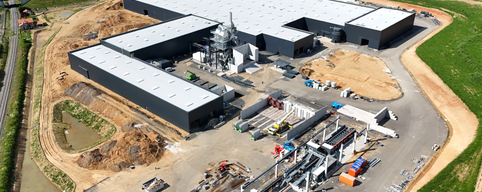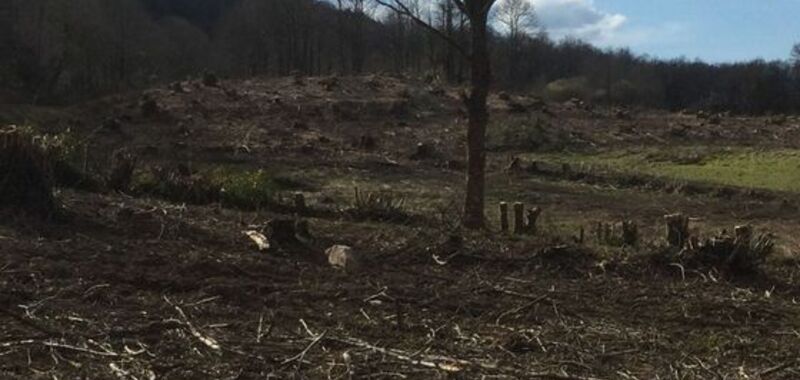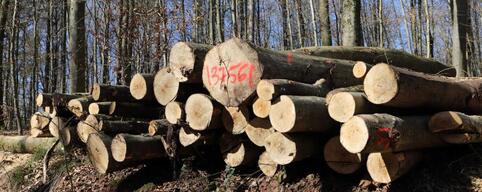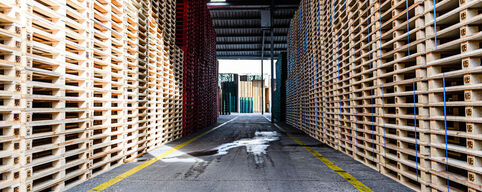

France is currently facing a growing challenge in its forests: the increase in tree theft. This phenomenon, which is gaining momentum, is largely linked to the rise in wood prices on the international market. Considered a precious commodity, wood has become a prime target for theft, placing French forest owners in a precarious situation.
This problem is not isolated; it is widespread throughout France. Traditionally wooded regions such as Aquitaine, the Vosges and Brittany are particularly affected, but no region is spared. Tree theft occurs regardless of geography, from private forests to communal plots. For many forest owners, this is a real crisis, both ecological and economic.
The consequences of these acts are not limited to material loss. They affect local biodiversity and threaten the integrity of forest ecosystems. Such an increase in illegal logging also undermines reforestation and sustainable forest management efforts.
The difficulty for owners also lies in monitoring vast areas of forest scattered across the country. Thieves, who are often well organized, take advantage of the isolation of certain locations to commit their crimes.
These acts of forest piracy also highlight the broader ecological issues related to natural resource management in France and internationally. As demand for sustainable raw materials grows, protecting these resources faces complex challenges.
In response to this alarming situation, measures have been put in place to try to curb this scourge. A special number has been set up to collect reports of theft, enabling a better assessment of the scale of the problem. This number gives owners the opportunity to report incidents effectively, ensuring that accurate and up-to-date data is collected.

Fransylva, the national union of forest owners, has also been actively involved in centralizing reports. This communication network aims to strengthen collaboration between owners and authorities, while providing valuable support to victims of these criminal acts.
In addition, improving security in forests remains a priority. Initiatives include installing surveillance systems, developing patrols, and raising awareness of the importance of protecting forest resources.
Local and national authorities are now aware of the seriousness of the problem and are called upon to take appropriate action. The aim is not only to deter, but also to strengthen a culture of collective vigilance towards our forests.
Fransylva's role is not limited to receiving calls. The union is also involved in discussions with decision-making bodies to adjust existing legislation and strengthen penalties against these illegal activities, a necessary step to deter future offenders.
The methods used by thieves are often ingenious and well orchestrated. Criminals dare to break in during broad daylight, carrying out meticulous reconnaissance beforehand by questioning neighbors about wooded properties. This highlights the need for increased vigilance and a transparent communication strategy between local communities and forest owners.
With the growing interest in hardwood, a concerted approach involving owners, municipalities, and national authorities is essential for the sustainable preservation of our forests and their biodiversity. Through coordinated efforts, France's forests can hope to remain the country's green lungs while preventing future threatening commercial excesses. As for the thieves, it is imperative to make it clear that these acts will not go unpunished.



